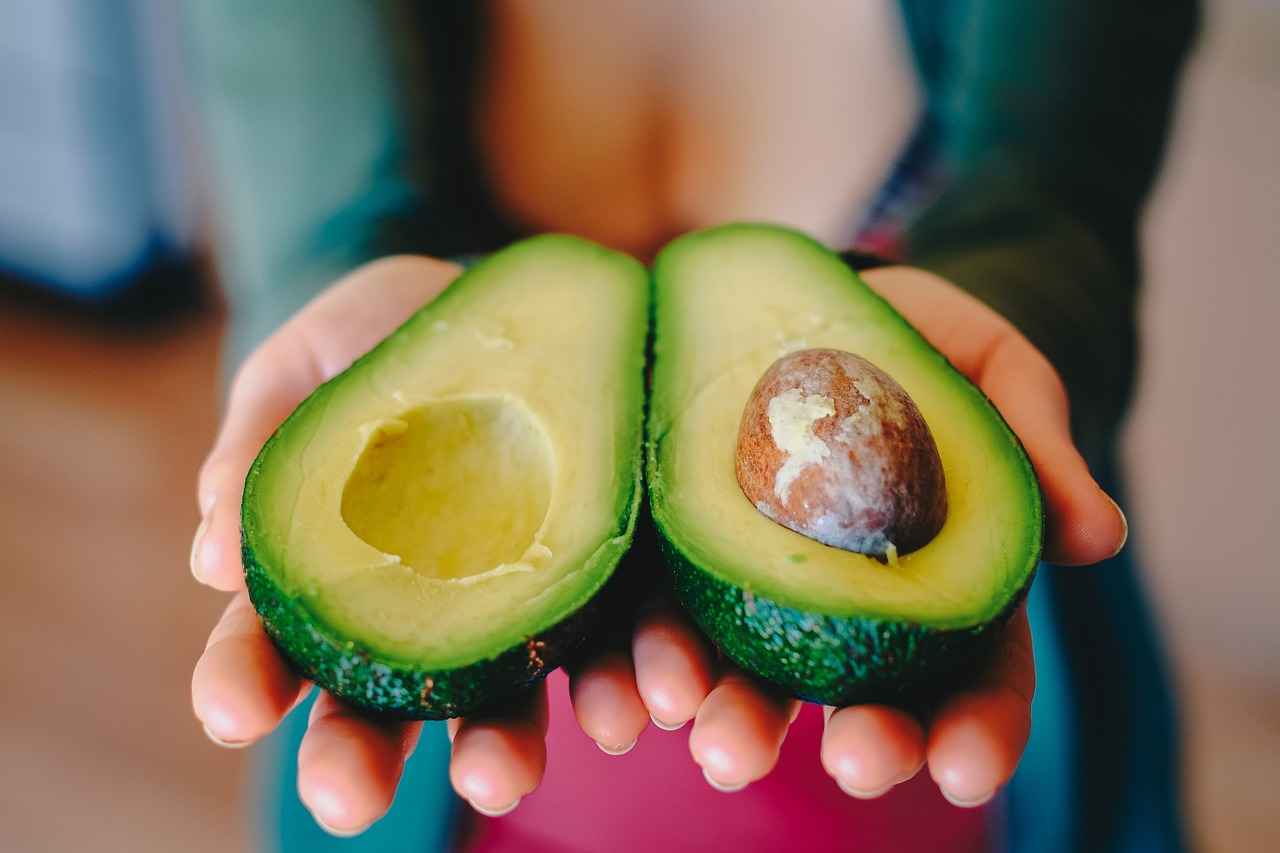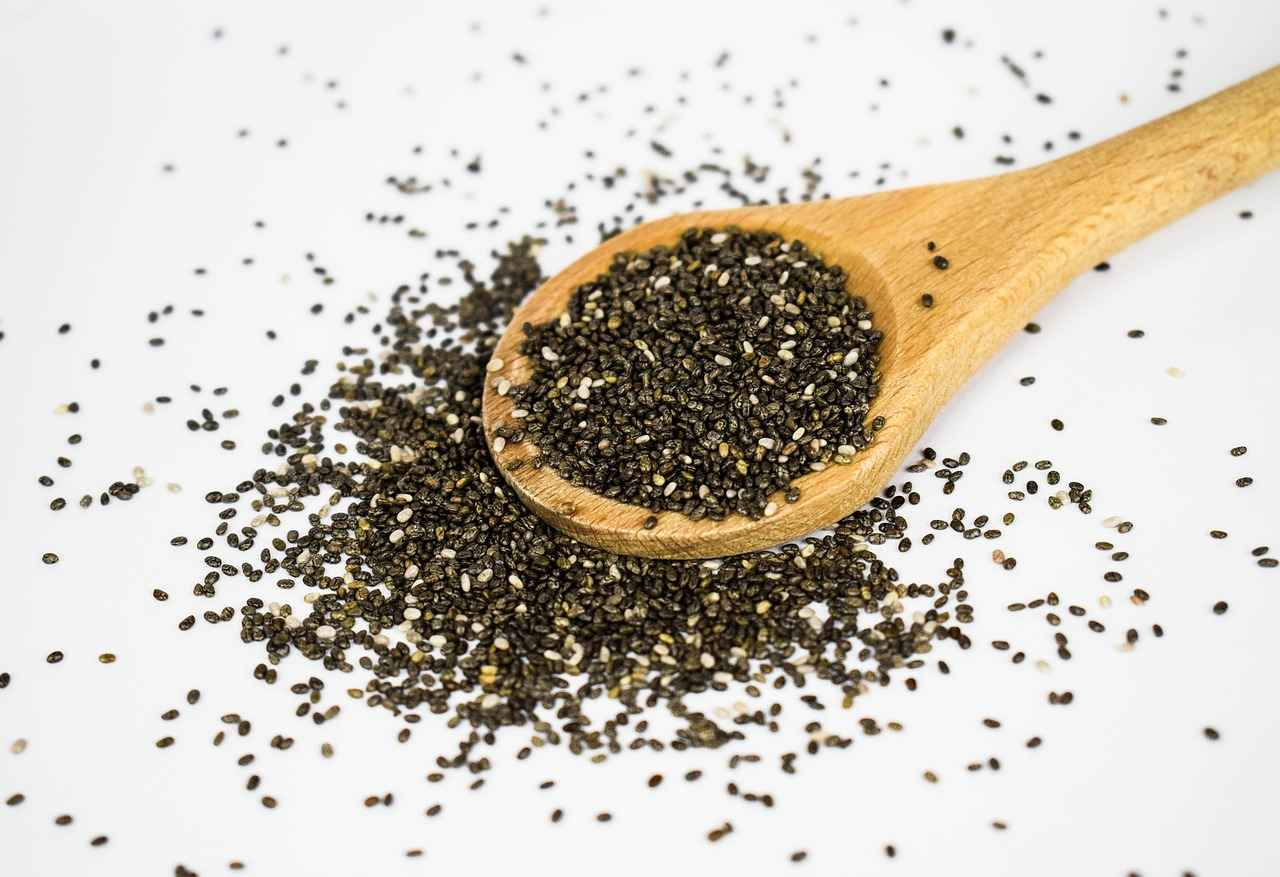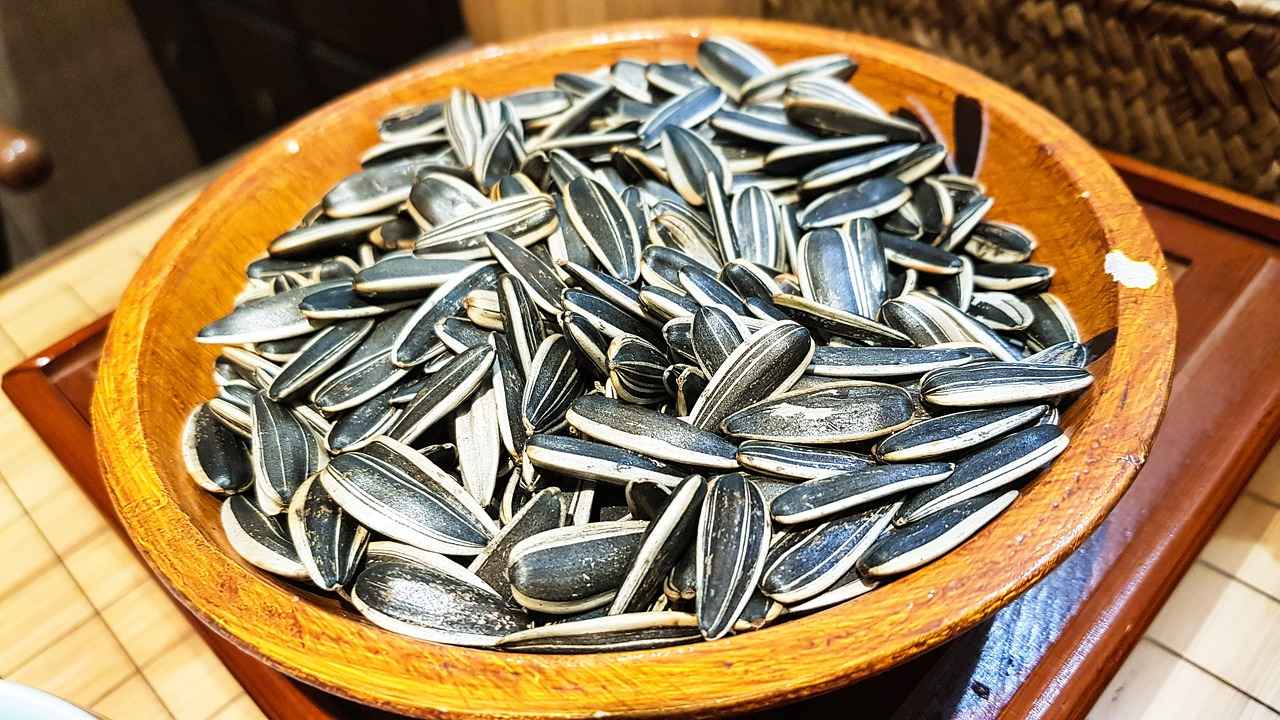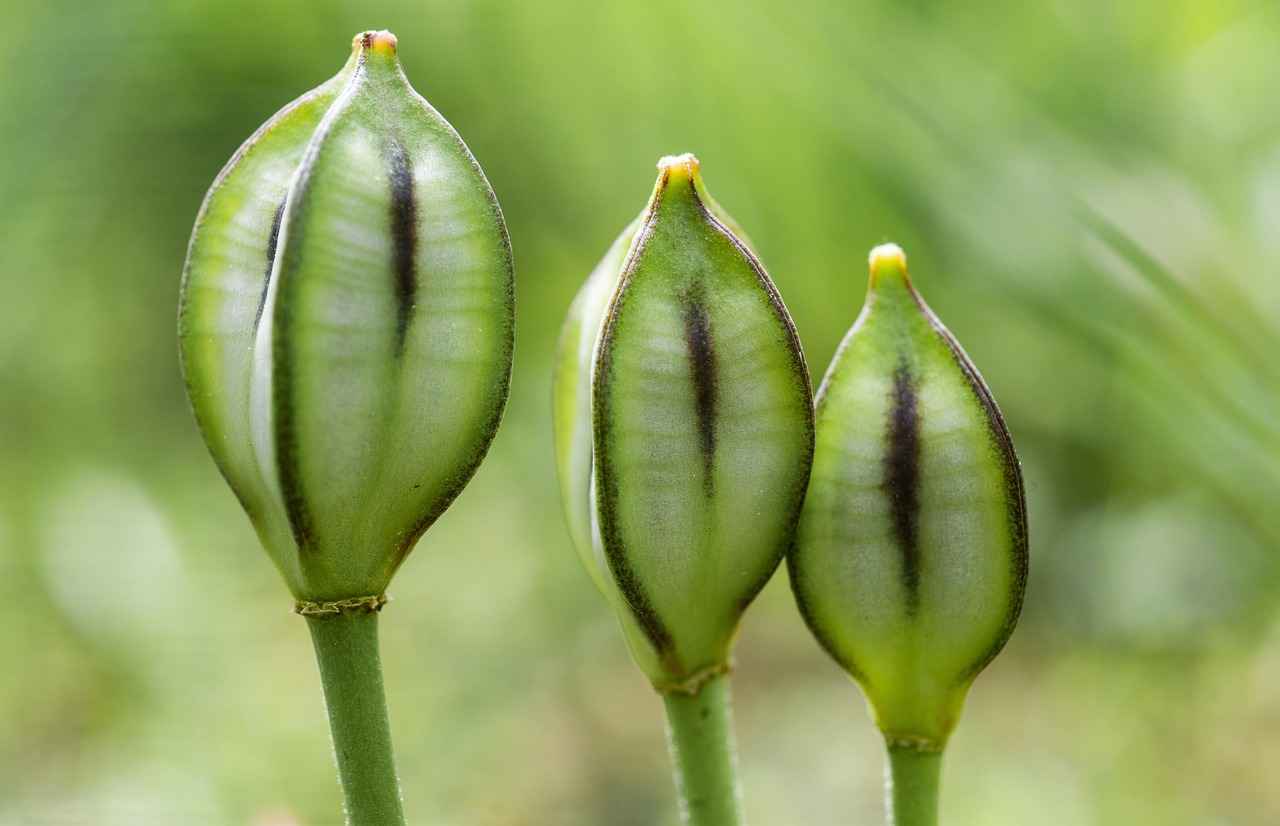Chia seeds have gained significant attention in recent years due to their impressive nutritional profile and numerous health benefits. These tiny seeds, originating from the Salvia hispanica plant, are packed with essential nutrients that can promote overall wellness. This article delves into the key nutrients found in chia seeds, their health advantages, and practical tips on how to incorporate them into your daily diet.
Chia seeds are small, oval-shaped seeds that can be black or white in color. They have been a staple in the diets of ancient civilizations, particularly the Aztecs and Mayans, who valued them for their energy-boosting properties. Today, they are celebrated as a superfood due to their rich nutrient content.
Chia seeds are often referred to as a superfood because they are rich in nutrients while being low in calories. They contain a wealth of omega-3 fatty acids, fiber, and antioxidants, which contribute to a variety of health benefits. Their unique combination of nutrients makes them a popular choice among health enthusiasts.
Chia seeds are a nutritional powerhouse, offering a variety of essential nutrients:
- Protein: Approximately 4 grams per ounce, providing a plant-based source of protein.
- Fiber: About 11 grams per ounce, promoting digestive health.
- Healthy Fats: Rich in alpha-linolenic acid (ALA), a type of omega-3 fatty acid.
- Vitamins and Minerals: Includes calcium, magnesium, and phosphorus.
Incorporating chia seeds into your diet can offer numerous health benefits:
- Improved Digestion: The high fiber content aids in digestive health and regularity.
- Heart Health: Omega-3 fatty acids help lower cholesterol and reduce inflammation.
- Weight Management: The fiber in chia seeds can promote satiety, helping to control appetite.
Chia seeds are versatile and can be easily added to various meals:
- Chia Seed Pudding: Combine chia seeds with milk or a milk alternative, let it sit overnight, and enjoy a nutritious breakfast.
- Smoothies: Add a tablespoon of chia seeds to your smoothies for a nutritional boost.
- Baking: Incorporate chia seeds into baked goods like bread or muffins for added texture and nutrients.
While chia seeds are generally safe for most people, some may experience side effects:
- Allergic Reactions: Some individuals may be allergic to chia seeds, leading to symptoms like itching or swelling.
- Digestive Issues: Due to their high fiber content, consuming too many chia seeds can cause bloating or gas. Start with small amounts and increase gradually.
In summary, chia seeds are a nutrient-dense food that can provide a range of health benefits. By incorporating them into your diet, you can enhance your nutritional intake and support your overall health.

What Are Chia Seeds?
Chia seeds are small, nutrient-dense seeds derived from the Salvia hispanica plant, a member of the mint family native to Central America. These tiny seeds, which can be black or white, have been a staple in the diets of ancient civilizations, such as the Aztecs and Mayans, who valued them for their energy-boosting properties. Today, chia seeds have gained popularity worldwide due to their impressive nutritional profile and numerous health benefits.
Chia seeds are often referred to as a superfood because they are packed with essential nutrients that contribute to overall health. Their high nutrient density includes an abundance of omega-3 fatty acids, dietary fiber, protein, and antioxidants. This combination of nutrients supports various bodily functions and can help prevent chronic diseases, making chia seeds a favorite among health enthusiasts.
Chia seeds are a powerhouse of essential nutrients. Here are some of the key components:
- Protein: Each ounce of chia seeds contains about 4 grams of protein, providing a plant-based source that supports muscle maintenance and overall health.
- Fiber: With approximately 11 grams of fiber per ounce, chia seeds promote digestive health, assist in weight management, and help maintain stable blood sugar levels.
- Healthy Fats: Rich in alpha-linolenic acid (ALA), a type of omega-3 fatty acid, chia seeds contribute to heart health and help reduce inflammation in the body.
- Vitamins and Minerals: Chia seeds are also rich in calcium, magnesium, phosphorus, and various antioxidants, which are essential for maintaining good health.
Incorporating chia seeds into your diet can lead to numerous health benefits:
- Heart Health: The omega-3 fatty acids in chia seeds can help lower cholesterol levels and reduce blood pressure, promoting overall cardiovascular health.
- Weight Management: Thanks to their high fiber content, chia seeds can help you feel fuller for longer, potentially reducing overall calorie intake and assisting in weight management efforts.
- Improved Digestion: The fiber in chia seeds aids in digestion and can help prevent constipation, contributing to a healthy digestive system.
Chia seeds are incredibly versatile and can be easily added to a variety of meals:
- Chia Seed Pudding: Combine chia seeds with milk or a milk alternative, let them soak overnight, and enjoy a delicious pudding for breakfast.
- Smoothies: Add a tablespoon of chia seeds to your smoothies for an extra nutritional boost without altering the flavor.
- Baking: Incorporate chia seeds into baked goods like muffins or bread for added texture and nutrition.
While chia seeds offer many health benefits, there are some potential side effects to consider:
- Allergic Reactions: Some individuals may experience allergic reactions to chia seeds, resulting in symptoms such as itching or swelling.
- Digestive Issues: Due to their high fiber content, consuming excessive amounts of chia seeds may lead to digestive discomfort, bloating, or gas. It’s best to start with small portions and gradually increase your intake.
In conclusion, chia seeds are a nutritious addition to any diet, offering a wide range of health benefits. Their versatility makes them easy to incorporate into meals, while their rich nutrient profile supports overall well-being. Whether you enjoy them in puddings, smoothies, or baked goods, chia seeds can be a valuable part of a healthy lifestyle.

Why Are Chia Seeds Considered a Superfood?
Chia seeds have gained significant popularity in recent years, often touted as a superfood. This designation stems from their impressive nutritional profile and the myriad of health benefits they offer. But what exactly makes these tiny seeds so special? Let’s delve deeper into their key components and understand why they are revered in the health community.
Rich in Omega-3 Fatty Acids
One of the standout features of chia seeds is their high content of omega-3 fatty acids. Specifically, they contain alpha-linolenic acid (ALA), which is essential for heart health. Omega-3 fatty acids are known to reduce inflammation, lower blood pressure, and improve cholesterol levels. Including chia seeds in your diet can be a natural way to boost your intake of these vital fats.
High Fiber Content
Chia seeds are also an excellent source of dietary fiber, with approximately 11 grams per ounce. This high fiber content aids digestion, promotes a feeling of fullness, and supports healthy blood sugar levels. For those looking to manage their weight, the fiber in chia seeds can be particularly beneficial, helping to control appetite and reduce overall calorie consumption.
Antioxidant Properties
Another reason chia seeds are considered a superfood is their rich supply of antioxidants. These compounds help combat oxidative stress in the body, reducing the risk of chronic diseases such as heart disease and cancer. The antioxidants in chia seeds can also contribute to healthier skin and improved overall wellness.
Complete Protein Source
For those following a plant-based diet, chia seeds provide a complete protein source. They contain all nine essential amino acids necessary for the body, making them a valuable addition for vegetarians and vegans. With about 4 grams of protein per ounce, chia seeds can help support muscle maintenance and overall health.
Versatile and Easy to Use
In addition to their nutritional benefits, chia seeds are incredibly versatile. They can be easily incorporated into various dishes, from smoothies and salads to baked goods and puddings. Their ability to absorb liquid and form a gel-like consistency makes them perfect for creating healthy puddings or as an egg substitute in vegan recipes.
How Do Chia Seeds Support Overall Health?
- Improved Digestive Health: The high fiber content promotes regular bowel movements and prevents constipation.
- Heart Health: Omega-3 fatty acids and antioxidants work together to lower the risk of heart disease.
- Weight Management: Chia seeds can help control hunger and reduce calorie intake.
- Bone Health: They are rich in calcium, magnesium, and phosphorus, which are essential for strong bones.
In summary, chia seeds are rightfully considered a superfood due to their remarkable nutrient density and extensive health benefits. By incorporating these tiny seeds into your diet, you can enjoy a wide array of advantages that support overall health and well-being. Whether you add them to your morning smoothie or use them in baking, chia seeds are a simple yet powerful way to enhance your nutrition.

Key Nutrients Found in Chia Seeds
Chia seeds are often celebrated for their remarkable nutritional profile, making them a popular choice for health-conscious individuals. These tiny seeds, derived from the Salvia hispanica plant, are not only versatile but also packed with essential nutrients that contribute to overall well-being.
Chia seeds are a powerhouse of nutrition, containing a variety of essential components that support health. Their unique composition includes:
- Protein: Chia seeds offer approximately 4 grams of protein per ounce, providing a plant-based protein source that aids in muscle repair and growth.
- Fiber: With about 11 grams of fiber per ounce, they promote digestive health, support regularity, and help maintain a feeling of fullness.
- Healthy Fats: Rich in omega-3 fatty acids, particularly alpha-linolenic acid (ALA), chia seeds contribute to heart health and help reduce inflammation.
- Vitamins and Minerals: They contain significant amounts of calcium, magnesium, phosphorus, and various B vitamins, essential for bone health and energy metabolism.
The health benefits of chia seeds are extensive, making them an excellent addition to any diet. Here are some key advantages:
- Digestive Health: The high fiber content in chia seeds aids in digestion by promoting regular bowel movements and preventing constipation.
- Heart Health: The omega-3 fatty acids in chia seeds can help lower cholesterol levels and blood pressure, supporting cardiovascular health.
- Weight Management: Their ability to absorb water and expand in the stomach can help control appetite, making it easier to manage weight.
- Bone Health: The calcium and phosphorus found in chia seeds contribute to maintaining strong bones and teeth.
Incorporating chia seeds into your meals is simple and enjoyable. Here are some practical ways to include them in your diet:
- Chia Seed Pudding: Mix chia seeds with your choice of milk or a milk alternative, add a sweetener if desired, and let it sit overnight for a delicious breakfast or snack.
- Smoothies: Add a tablespoon of chia seeds to your smoothies for an extra boost of nutrients without altering the flavor.
- Baking: Incorporate chia seeds into muffins, bread, or energy bars for added texture and nutrition.
While chia seeds are generally safe for most people, some may experience side effects. It’s important to be aware of the following:
- Allergic Reactions: Rarely, individuals may have allergic reactions to chia seeds, resulting in symptoms like itching or swelling.
- Digestive Issues: Due to their high fiber content, consuming large quantities of chia seeds may cause digestive discomfort. Start with small amounts and gradually increase your intake.
In conclusion, chia seeds are a nutrient-dense superfood that can enhance your diet significantly. Their combination of protein, fiber, healthy fats, and essential vitamins and minerals makes them an excellent choice for anyone looking to improve their overall health.
Protein Content in Chia Seeds
Chia seeds have gained significant popularity in recent years, and one of the key reasons for this is their impressive protein content. With approximately 4 grams of protein per ounce, chia seeds serve as an excellent plant-based protein source. This is particularly beneficial for individuals looking to maintain or build muscle mass, as well as those following vegetarian or vegan diets.
Protein is a crucial macronutrient that plays a vital role in various bodily functions. It is essential for muscle repair, growth, and maintenance. Additionally, protein supports the production of enzymes and hormones, which are critical for metabolic processes. For athletes and fitness enthusiasts, consuming adequate protein is key to optimizing performance and recovery.
When comparing chia seeds to other protein sources, they stand out due to their unique nutrient profile. Unlike many animal-based proteins, chia seeds are plant-based, making them suitable for a wide range of dietary preferences. While they may not contain as much protein per serving as meats or dairy products, their added benefits, such as fiber and omega-3 fatty acids, make them a valuable addition to any diet.
- Fiber Content: Chia seeds are an excellent source of dietary fiber, with around 11 grams per ounce. This high fiber content aids in digestion and helps maintain a feeling of fullness.
- Healthy Fats: They are rich in omega-3 fatty acids, which are known for their heart health benefits and anti-inflammatory properties.
- Vitamins and Minerals: Chia seeds provide essential nutrients like calcium, magnesium, and phosphorus, contributing to overall health.
Incorporating chia seeds into your meals is simple and versatile. Here are a few practical suggestions:
- Add to Smoothies: Blend a tablespoon of chia seeds into your favorite smoothie for an extra protein boost.
- Make Chia Pudding: Combine chia seeds with your choice of milk, sweetener, and flavorings. Let it sit overnight for a delicious breakfast option.
- Sprinkle on Salads: Use chia seeds as a crunchy topping for salads, enhancing both texture and nutritional value.
While chia seeds are generally safe for most people, it is important to consume them in moderation. Due to their high fiber content, excessive intake may lead to digestive issues such as bloating or gas. It is advisable to start with small amounts and gradually increase your intake as your body adjusts.
In conclusion, chia seeds are a nutrient-dense superfood that provides an excellent source of plant-based protein, along with a plethora of other health benefits. By incorporating chia seeds into your diet, you can enhance your overall nutritional intake while enjoying their unique texture and flavor in various dishes.
Fiber: The Digestive Powerhouse
Chia seeds are often celebrated for their remarkable fiber content, which stands at approximately 11 grams per ounce. This impressive amount of fiber positions chia seeds as a superfood that can significantly enhance digestive health. But how exactly does fiber contribute to our well-being, and why should you consider incorporating chia seeds into your diet?
What Makes Fiber So Important?
- Promotes Regularity: Fiber is essential for maintaining regular bowel movements. It adds bulk to the stool, helping food pass more easily through the digestive tract.
- Aids in Weight Management: High-fiber foods like chia seeds can help you feel fuller longer, reducing the likelihood of overeating and assisting in weight control.
- Stabilizes Blood Sugar Levels: Fiber slows down the absorption of sugar, which helps maintain stable blood sugar levels and can be particularly beneficial for those with diabetes.
How Do Chia Seeds Support Digestive Health?
When chia seeds are consumed, they absorb liquid and expand in the stomach, creating a gel-like substance. This gel not only aids in digestion but also provides a sense of fullness, which can help curb cravings. Additionally, the soluble fiber in chia seeds acts as a prebiotic, nourishing the beneficial bacteria in your gut and promoting a healthy microbiome.
Incorporating Chia Seeds into Your Diet
Adding chia seeds to your meals is simple and versatile. Here are some practical tips:
- Chia Seed Pudding: Mix chia seeds with your choice of milk or yogurt, let it sit overnight, and enjoy a nutritious breakfast.
- Smoothies: Blend chia seeds into your smoothies for an extra fiber boost without altering the flavor.
- Baking: Incorporate chia seeds into baked goods like muffins or bread for added texture and nutrition.
Potential Side Effects of Excessive Fiber Intake
While fiber is crucial for health, it’s important to consume it in moderation. Overconsumption of chia seeds can lead to digestive issues such as bloating, gas, or discomfort. To avoid these side effects, start with a small amount and gradually increase your intake, allowing your digestive system to adjust.
Final Thoughts on Chia Seeds and Fiber
In conclusion, chia seeds are a nutrient-dense food that offers a wealth of benefits, particularly due to their high fiber content. By incorporating them into your diet, you can support your digestive health, manage your weight, and maintain stable blood sugar levels. Remember to listen to your body and enjoy chia seeds as part of a balanced diet for optimal health.
Healthy Fats: Omega-3 Fatty Acids
play a crucial role in maintaining overall health, and chia seeds are an excellent source of these essential nutrients. Among the various types of omega-3 fatty acids, alpha-linolenic acid (ALA) stands out due to its numerous health benefits, particularly for heart health and inflammation reduction.
Omega-3 fatty acids are a group of polyunsaturated fats that are vital for various bodily functions. They are classified into three main types: ALA, EPA (eicosapentaenoic acid), and DHA (docosahexaenoic acid). While EPA and DHA are primarily found in fish and algae, ALA is predominantly found in plant sources such as chia seeds, flaxseeds, and walnuts.
Research indicates that omega-3 fatty acids can significantly improve heart health in several ways:
- Lowering Cholesterol Levels: ALA helps reduce levels of LDL cholesterol, often referred to as “bad” cholesterol, which can lead to heart disease.
- Reducing Blood Pressure: Regular consumption of omega-3 fatty acids has been linked to lower blood pressure, promoting better cardiovascular function.
- Decreasing Inflammation: Omega-3s have anti-inflammatory properties, which can help reduce the risk of chronic diseases related to inflammation, such as heart disease.
Inflammation is a natural response of the body to injury or infection. However, chronic inflammation can lead to various health issues, including arthritis, heart disease, and other inflammatory conditions. ALA, found abundantly in chia seeds, can help modulate the body’s inflammatory response:
- Inhibiting Pro-inflammatory Markers: Omega-3 fatty acids can decrease the production of pro-inflammatory cytokines, which are proteins that promote inflammation.
- Supporting Joint Health: Regular intake of ALA may help alleviate symptoms of arthritis and other joint-related disorders.
Incorporating chia seeds into your daily diet is simple and effective. Here are some practical tips to maximize your omega-3 intake:
- Add to Breakfast: Sprinkle chia seeds on your morning oatmeal or yogurt for a nutritious boost.
- Mix into Smoothies: Blend chia seeds into your favorite smoothies for added texture and health benefits.
- Use in Baking: Incorporate chia seeds into baked goods like muffins or bread for a healthy twist.
While omega-3 fatty acids are generally safe and beneficial, it is essential to consume them in moderation. Excessive intake can lead to potential side effects, including:
- Blood Thinning: High doses of omega-3 fatty acids may increase the risk of bleeding, especially for individuals taking blood-thinning medications.
- Gastrointestinal Issues: Some people may experience digestive discomfort, such as bloating or diarrhea, when consuming large amounts of chia seeds.
In summary, chia seeds are an excellent source of alpha-linolenic acid, a type of omega-3 fatty acid that contributes significantly to heart health and reduces inflammation in the body. By incorporating these tiny seeds into your meals, you can harness their health benefits and improve your overall well-being.

Health Benefits of Chia Seeds
Chia seeds, often hailed as a nutritional powerhouse, are tiny seeds packed with numerous health benefits. Incorporating these seeds into your daily diet can significantly enhance your overall well-being. Below, we explore the various health benefits of chia seeds in detail.
Chia seeds offer a wide array of health benefits, making them a popular choice for health-conscious individuals. Here are some key advantages:
- Improved Digestion: Chia seeds are an excellent source of dietary fiber, containing about 11 grams of fiber per ounce. This high fiber content aids in promoting regular bowel movements and preventing constipation. The soluble fiber in chia seeds absorbs water, forming a gel-like substance that helps keep you feeling full and satisfied.
- Enhanced Heart Health: Rich in omega-3 fatty acids, chia seeds can help lower cholesterol levels and reduce inflammation in the body. Studies suggest that these healthy fats can improve cardiovascular health by lowering blood pressure and decreasing the risk of heart disease.
- Better Weight Management: Due to their ability to absorb water and expand in your stomach, chia seeds can help you feel fuller for longer periods. This can lead to reduced calorie intake, making them a valuable addition to any weight management plan.
- Bone Health: Chia seeds are also a great source of several nutrients essential for bone health, including calcium, phosphorus, and magnesium. Incorporating them into your diet can support bone density and reduce the risk of osteoporosis.
- Blood Sugar Regulation: The fiber and healthy fats in chia seeds can help stabilize blood sugar levels. This is particularly beneficial for individuals with diabetes, as it can prevent spikes in blood sugar after meals.
The unique combination of nutrients in chia seeds contributes to their numerous health benefits. Here’s how:
- Antioxidant Properties: Chia seeds are rich in antioxidants, which help combat oxidative stress and inflammation in the body. This can lead to a lower risk of chronic diseases.
- Plant-Based Protein: With about 4 grams of protein per ounce, chia seeds provide a plant-based protein source that is beneficial for muscle maintenance and overall health.
- Hydration: Chia seeds can absorb up to 12 times their weight in water, making them a great option for maintaining hydration, especially during exercise.
Incorporating chia seeds into your meals is simple and versatile. Here are some practical tips:
- Chia Seed Pudding: Mix chia seeds with your choice of milk or yogurt, sweeten to taste, and let it sit overnight for a delicious breakfast or snack.
- Smoothies: Add a tablespoon of chia seeds to your smoothies for an extra boost of nutrients without altering the flavor.
- Baking: Incorporate chia seeds into your baking recipes, such as muffins or bread, to enhance their nutritional profile.
- Salads and Soups: Sprinkle chia seeds on top of salads or mix them into soups for added crunch and nutrition.
In summary, incorporating chia seeds into your diet can significantly enhance your health. With their myriad of benefits, from improved digestion to heart health, these tiny seeds are a worthy addition to any meal plan.
Chia Seeds and Heart Health
Chia seeds, often celebrated for their nutritional prowess, play a significant role in promoting heart health. These tiny seeds are not just a trendy health food; they are packed with essential nutrients that can positively impact cardiovascular function.
The omega-3 fatty acids found in chia seeds, particularly alpha-linolenic acid (ALA), are vital for maintaining a healthy heart. Research indicates that these fatty acids can help in lowering cholesterol levels and reducing inflammation throughout the body. By incorporating chia seeds into your diet, you may experience a decrease in LDL cholesterol (often referred to as “bad” cholesterol) levels, which is crucial for preventing heart disease.
High blood pressure is a significant risk factor for heart disease. The consumption of chia seeds has been linked to lowering blood pressure in individuals with hypertension. The fiber and omega-3 content in these seeds contribute to improved blood vessel function, allowing for better blood flow and circulation. This can lead to a healthier heart and reduced strain on the cardiovascular system.
Chronic inflammation is often at the root of many cardiovascular diseases. The omega-3 fatty acids in chia seeds have anti-inflammatory properties that can help mitigate this risk. By consuming chia seeds regularly, you may assist your body in reducing inflammation, thereby promoting overall cardiovascular health.
- Chia Seed Smoothies: Blend chia seeds into your favorite smoothie for an added nutritional boost.
- Chia Seed Pudding: Mix chia seeds with almond milk and let them sit overnight for a delicious breakfast.
- Sprinkle on Salads: Add chia seeds to salads for a crunchy texture and heart-healthy benefits.
To reap the heart health benefits of chia seeds, a daily intake of about 1-2 tablespoons is recommended. This amount provides a sufficient dose of omega-3 fatty acids and fiber without overwhelming your digestive system.
While chia seeds are generally safe for most people, it is essential to consume them in moderation. Overconsumption can lead to digestive issues due to their high fiber content. Always start with small amounts to assess your body’s response.
In summary, chia seeds are a powerhouse of omega-3 fatty acids and other essential nutrients that can significantly contribute to heart health. By lowering cholesterol levels, reducing blood pressure, and fighting inflammation, chia seeds present a simple yet effective way to enhance your cardiovascular well-being.
Weight Management and Chia Seeds
Chia seeds have gained immense popularity in recent years, especially among those seeking to manage their weight effectively. This tiny superfood is not only rich in essential nutrients but also plays a significant role in weight management. In this section, we will delve deeper into how chia seeds can aid in weight loss and overall health.
The secret to chia seeds’ effectiveness in weight management lies in their high fiber content. With approximately 11 grams of fiber per ounce, chia seeds can absorb up to 12 times their weight in water, forming a gel-like substance in the stomach. This process can lead to a feeling of fullness, or satiety, which may help individuals consume fewer calories throughout the day.
When you consume chia seeds, they expand in your stomach, which can help you feel satisfied and curb hunger pangs. This prolonged sensation of fullness can lead to reduced snacking and smaller portion sizes at meals, ultimately contributing to lower calorie intake. By incorporating chia seeds into your diet, you may find it easier to resist the temptation of unhealthy snacks and overeating.
Chia seeds also play a vital role in maintaining stable blood sugar levels. The soluble fiber in chia seeds slows down the digestion process, which helps prevent spikes in blood sugar. This is particularly beneficial for individuals looking to manage their weight, as stable blood sugar levels can reduce cravings and the likelihood of energy crashes that lead to unhealthy eating habits.
- Chia Seed Pudding: Combine chia seeds with your choice of milk or yogurt and let them sit overnight. This delicious pudding can serve as a nutritious breakfast or snack.
- Smoothie Booster: Add a tablespoon of chia seeds to your morning smoothie for an extra fiber boost that keeps you full longer.
- Thickening Agent: Use chia seeds to thicken soups or sauces, enhancing their nutritional value while helping you feel satisfied.
For optimal weight management, consider pairing chia seeds with other nutrient-dense foods. For example, adding them to salads, oatmeal, or baked goods can enhance the overall fiber content of your meals. This combination not only provides essential nutrients but also promotes a balanced diet that supports weight loss efforts.
While chia seeds are beneficial, moderation is key. The general recommendation is to consume about 1 to 2 tablespoons of chia seeds daily. This amount can provide you with the necessary fiber and nutrients without overwhelming your digestive system.
Though chia seeds are generally safe for most people, it’s essential to be aware of potential side effects. Some individuals may experience digestive discomfort if they consume too many chia seeds at once, mainly due to their high fiber content. It’s advisable to start with smaller portions and gradually increase your intake to allow your body to adjust.
In conclusion, incorporating chia seeds into your diet can be a powerful strategy for weight management. Their high fiber content, ability to promote satiety, and role in stabilizing blood sugar levels make them an excellent addition to a balanced diet. By using chia seeds wisely and in moderation, you can take significant steps toward achieving your weight management goals.

How to Incorporate Chia Seeds into Your Diet
Chia seeds are not only nutritious but also incredibly versatile, making them an excellent addition to your daily meals. With their ability to absorb liquid and form a gel-like consistency, they can enhance both the texture and nutritional value of various dishes. Here are some practical tips on how to enjoy chia seeds every day.
- Chia Seed Pudding: One of the simplest ways to incorporate chia seeds into your diet is by making chia seed pudding. Combine 3 tablespoons of chia seeds with 1 cup of milk (dairy or plant-based) and a sweetener of your choice. Let it sit in the fridge overnight. In the morning, you’ll have a delicious and creamy pudding that can be topped with fruits, nuts, or granola.
- In Smoothies: Adding chia seeds to your smoothies can boost their nutritional profile. Just add a tablespoon of chia seeds to your blend. They won’t alter the flavor but will provide extra fiber and omega-3 fatty acids.
- Baking: You can enhance the nutritional content of your baked goods by including chia seeds in recipes for muffins, breads, or pancakes. For every cup of flour, add 2 tablespoons of chia seeds to reap the benefits without changing the taste.
- As a Topping: Sprinkle chia seeds on top of salads, oatmeal, or yogurt for a nutritious crunch. This simple addition can enhance the texture and provide a boost of nutrients.
- Chia Gel: Create a chia gel by mixing 1 part chia seeds to 3 parts water. Let it sit for about 30 minutes until it thickens. Use this gel as a vegan egg substitute in baking or as a thickener in smoothies and soups.
Incorporating chia seeds into your diet can offer numerous health benefits. Their high fiber content promotes digestive health, while the omega-3 fatty acids contribute to heart health. Additionally, chia seeds can help with weight management by keeping you feeling full for longer periods.
While chia seeds are generally safe for most people, it’s important to consume them in moderation. Start with a small amount, such as 1 tablespoon per day, and gradually increase your intake. This approach can help minimize any potential digestive discomfort, especially for those not accustomed to high-fiber foods.
Absolutely! Chia seeds can be enjoyed in various meals throughout the day:
- Breakfast: Add them to smoothies, oatmeal, or yogurt.
- Lunch: Use chia seeds in salads or as a topping for soups.
- Dinner: Incorporate them into sauces or dressings for added texture and nutrition.
- Snacks: Make chia seed energy balls or bars for a healthy on-the-go option.
In conclusion, chia seeds are a fantastic way to enhance the nutritional value of your meals while enjoying their numerous health benefits. By incorporating them into your daily diet through various methods, you can easily reap the rewards of this superfood.
Chia Seed Pudding Recipes
Chia seed pudding has gained immense popularity as a nutritious breakfast option that is both delicious and easy to prepare. This delightful dish is not only a great way to start your day but also offers a plethora of health benefits. By simply mixing chia seeds with your choice of milk or a milk alternative, you can create a creamy, satisfying treat that is rich in essential nutrients.
The versatility of chia seed pudding makes it an ideal breakfast choice. It is high in fiber, which promotes digestive health and keeps you feeling full longer. Additionally, chia seeds are packed with omega-3 fatty acids, protein, and various vitamins and minerals that contribute to overall well-being.
Creating chia seed pudding is remarkably simple. Follow these steps for a basic recipe:
- Ingredients:
- 1/4 cup chia seeds
- 1 cup milk or milk alternative (almond, coconut, soy, etc.)
- 1-2 tablespoons sweetener (honey, maple syrup, or agave syrup)
- 1/2 teaspoon vanilla extract (optional)
- Instructions:
- In a mixing bowl, combine the chia seeds, milk, sweetener, and vanilla extract.
- Stir well to ensure there are no clumps.
- Cover and refrigerate overnight (or for at least 4 hours) to allow the seeds to absorb the liquid and thicken.
- Before serving, stir again and add your favorite toppings.
Once you’ve mastered the basic recipe, consider trying out these delicious variations:
- Chocolate Chia Seed Pudding: Add 2 tablespoons of cocoa powder and a bit more sweetener to the basic recipe for a chocolatey twist.
- Fruit and Nut Chia Seed Pudding: Top your pudding with fresh fruits like berries, bananas, or mango, and sprinkle some nuts or seeds for added crunch.
- Coconut Chia Seed Pudding: Use coconut milk and add shredded coconut for a tropical flavor.
To achieve the best results, keep these tips in mind:
- Mix Thoroughly: Ensure the chia seeds are evenly distributed in the liquid to avoid clumping.
- Experiment with Ratios: Adjust the chia seed to liquid ratio based on your desired thickness.
- Serve Cold: Chia seed pudding is best enjoyed chilled, making it a refreshing breakfast option.
Incorporating chia seed pudding into your diet can lead to numerous health benefits:
- Improved Digestion: The high fiber content aids in digestion and promotes gut health.
- Heart Health: Omega-3 fatty acids help reduce inflammation and support cardiovascular health.
- Weight Management: The satiating nature of chia seeds can assist in controlling appetite and reducing calorie intake.
In summary, chia seed pudding is a versatile, nutritious, and delicious breakfast option that can easily be tailored to suit your taste preferences. With its numerous health benefits and simple preparation, it’s no wonder that chia seed pudding has become a favorite among health enthusiasts.
Adding Chia Seeds to Smoothies
In recent years, smoothies have become a staple in many health-conscious diets, offering a quick and convenient way to consume essential nutrients. One of the simplest yet most effective ways to enhance the nutritional profile of your smoothies is by incorporating chia seeds. This tiny superfood is packed with benefits that can elevate your smoothie game.
Chia seeds are incredibly versatile and can be easily added to a variety of smoothie recipes. With their neutral flavor, they seamlessly blend into your favorite combinations without overpowering other ingredients. But the benefits don’t stop there!
By adding just a tablespoon of chia seeds to your smoothie, you can significantly enhance its nutritional value. Here’s how:
- Rich in Omega-3 Fatty Acids: Chia seeds are one of the best plant-based sources of omega-3 fatty acids, which are essential for heart health.
- High in Fiber: A tablespoon of chia seeds contains about 5 grams of fiber, which aids in digestion and helps keep you feeling full longer.
- Protein Powerhouse: Chia seeds provide a good source of protein, making your smoothie more satiating and beneficial for muscle repair.
- Loaded with Antioxidants: These tiny seeds are rich in antioxidants, which help combat oxidative stress in the body.
Incorporating chia seeds into your smoothies is incredibly easy. Here are a few tips to get you started:
- Soak Before Blending: For a creamier texture, soak chia seeds in water or your choice of milk for about 10-15 minutes before adding them to your smoothie.
- Experiment with Flavors: Chia seeds work well with a variety of fruits and vegetables. Try mixing them with spinach, banana, and almond milk for a nutrient-packed green smoothie.
- Use as a Thickening Agent: If you prefer a thicker consistency, add more chia seeds to your smoothie. They absorb liquid and expand, creating a satisfying texture.
Here are a couple of delicious smoothie recipes to inspire you:
- Berry Chia Blast: Blend together 1 cup of mixed berries, 1 banana, 1 cup of yogurt, and 1 tablespoon of chia seeds for a refreshing treat.
- Green Power Smoothie: Combine 1 cup of spinach, 1 apple, 1 banana, 1 cup of almond milk, and 1 tablespoon of chia seeds for a nutrient-dense option.
While chia seeds are generally safe for most people, it’s important to consume them in moderation. Overconsumption can lead to digestive issues due to their high fiber content. Start with a small amount and gradually increase to see how your body reacts.
In conclusion, adding chia seeds to your smoothies is a simple yet effective way to boost their nutritional content. With their numerous health benefits and versatility, chia seeds can easily become a staple in your smoothie routine. So why not give them a try in your next blend?

Potential Side Effects of Chia Seeds
Chia seeds have gained immense popularity due to their numerous health benefits and nutritional value. However, it is crucial to understand that, like any food, they may not be suitable for everyone. This article will delve into the , particularly for individuals with specific dietary restrictions or medical conditions.
While chia seeds are generally safe for most people, some may experience side effects. Below are some of the common side effects associated with chia seed consumption:
- Allergic Reactions: Some individuals may have an allergy to chia seeds, leading to symptoms such as itching, swelling, or even more severe reactions. If you have a history of food allergies, consult your doctor before adding chia seeds to your diet.
- Digestive Issues: Due to their high fiber content, consuming large amounts of chia seeds can cause digestive discomfort. Symptoms may include bloating, gas, or constipation. It’s advisable to start with a small amount and gradually increase your intake.
- Blood Thinning Effects: Chia seeds are rich in omega-3 fatty acids, which can have a blood-thinning effect. Individuals on anticoagulant medications should consult a healthcare professional before consuming chia seeds regularly.
- Potential for Choking: Chia seeds can absorb a significant amount of liquid, expanding in size. If consumed dry or without adequate hydration, they may pose a choking hazard. Always soak chia seeds in liquid before consumption.
While chia seeds can be a healthy addition to many diets, certain groups should exercise caution:
- Individuals with Digestive Disorders: People with conditions like irritable bowel syndrome (IBS) or other digestive issues may find that chia seeds exacerbate their symptoms.
- Pregnant and Nursing Women: Although chia seeds are nutritious, pregnant and nursing women should consult their healthcare provider before adding them to their diet to ensure safety.
- People with Kidney Issues: Due to their high phosphorus content, those with kidney problems should limit their intake of chia seeds.
To enjoy the benefits of chia seeds while minimizing potential side effects, consider the following tips:
- Start Small: Begin with a small amount, such as one teaspoon, and gradually increase to one or two tablespoons as your body adjusts.
- Stay Hydrated: Always soak chia seeds in water, juice, or milk before consuming to prevent choking and digestive discomfort.
- Consult a Healthcare Professional: If you have any underlying health conditions or concerns, it’s best to seek advice from a healthcare provider before adding chia seeds to your diet.
In summary, while chia seeds are a powerhouse of nutrition, it’s essential to be aware of their potential side effects, especially for those with specific health conditions. By understanding how to incorporate them safely into your diet, you can enjoy their many health benefits while minimizing risks.
Allergic Reactions and Sensitivities
Chia seeds are celebrated for their numerous health benefits, but it is vital to understand that not everyone can enjoy them without caution. Allergic reactions to chia seeds, while relatively rare, can occur and may vary in severity from person to person. Understanding these potential sensitivities is crucial for anyone considering adding chia seeds to their diet.
Individuals with an allergy to chia seeds might experience a range of symptoms after consumption. Common signs include:
- Itching or hives on the skin
- Swelling of the face, lips, or throat
- Gastrointestinal issues such as nausea, vomiting, or diarrhea
- Respiratory problems like difficulty breathing or wheezing
If you notice any of these symptoms after consuming chia seeds, it is essential to seek medical advice promptly.
Before incorporating chia seeds into your diet, especially if you have a history of food allergies, consider conducting a patch test or consult with an allergist. This professional can perform tests to determine if you have an allergy to chia seeds or any related foods, such as flaxseeds or sesame seeds, which may trigger similar reactions.
If you suspect you are having an allergic reaction to chia seeds, it is crucial to take immediate action:
- Stop consuming chia seeds and any products containing them.
- Monitor your symptoms closely. If they worsen, seek emergency medical help.
- For mild reactions, over-the-counter antihistamines may alleviate symptoms, but consult with a healthcare provider for personalized advice.
While it may not be possible to prevent an allergy entirely, you can take steps to minimize the risk of a reaction:
- Gradual Introduction: If you are trying chia seeds for the first time, start with a small amount to see how your body reacts.
- Awareness of Cross-Reactivity: Be cautious if you have allergies to other seeds or nuts, as cross-reactivity can occur.
- Consultation with a Healthcare Professional: Discuss any concerns with your doctor or a registered dietitian, especially if you have known food allergies.
In conclusion, while chia seeds are a nutritious addition to many diets, it is essential to be aware of potential allergic reactions. By monitoring your body’s response and consulting with healthcare professionals, you can safely enjoy the benefits of chia seeds without compromising your health.
Digestive Issues
Chia seeds are celebrated for their numerous health benefits, but it’s important to approach their consumption mindfully, especially regarding their high fiber content. While fiber is essential for a healthy digestive system, excessive intake of chia seeds can lead to some uncomfortable digestive issues.
When consumed in moderation, chia seeds can be a fantastic addition to your diet. However, if you overindulge, you may experience digestive discomfort, including symptoms such as bloating, gas, and even constipation. This is primarily due to the seeds’ ability to absorb liquid, expanding significantly in your stomach.
The fiber in chia seeds is predominantly soluble, which means it absorbs water and forms a gel-like substance in the digestive tract. While this can be beneficial for promoting regularity, consuming too many chia seeds without adequate hydration can lead to the seeds swelling in your digestive system, causing discomfort.
- Start Small: If you are new to chia seeds, begin with a small portion, such as one teaspoon, and gradually increase your intake.
- Stay Hydrated: Drink plenty of water throughout the day. This helps the fiber work effectively in your digestive system.
- Soak Before Eating: Soaking chia seeds in water or your favorite liquid before consumption can help them expand before they enter your digestive system, making them easier to digest.
It’s crucial to listen to your body. If you notice symptoms like bloating or gas after consuming chia seeds, it may be an indication that you are eating too much too quickly. Reducing your intake and ensuring you are properly hydrated can alleviate these symptoms.
Individuals with certain digestive disorders, such as irritable bowel syndrome (IBS) or those who are sensitive to high-fiber foods, should consult a healthcare provider before incorporating chia seeds into their diet. Additionally, those who have had previous issues with fiber intake should be particularly cautious.
Chia seeds can be a nutritious and beneficial part of your diet when consumed wisely. By starting with small amounts and ensuring adequate hydration, you can enjoy the health benefits of these tiny seeds without the unpleasant side effects. Remember, moderation is key to maintaining a healthy digestive system.
Frequently Asked Questions
- What are the main health benefits of chia seeds?
Chia seeds are rich in omega-3 fatty acids, fiber, and antioxidants, which can improve digestion, enhance heart health, and assist with weight management. They help lower cholesterol levels and keep you feeling full longer.
- How can I incorporate chia seeds into my diet?
You can easily add chia seeds to your meals! Mix them into smoothies, sprinkle them on yogurt, or make a delicious chia seed pudding by soaking them in milk or a milk alternative overnight.
- Are there any side effects of consuming chia seeds?
While chia seeds are generally safe, some people may experience allergic reactions or digestive issues, especially if consumed in large amounts. It’s wise to start with small servings and see how your body reacts.
- How much chia seeds should I eat daily?
A typical serving size is about 1 to 2 tablespoons per day. This amount provides a good balance of nutrients without overwhelming your digestive system.
- Can chia seeds help with weight loss?
Yes! The high fiber content in chia seeds can help you feel full longer, which may lead to reduced calorie intake and support your weight loss efforts.












